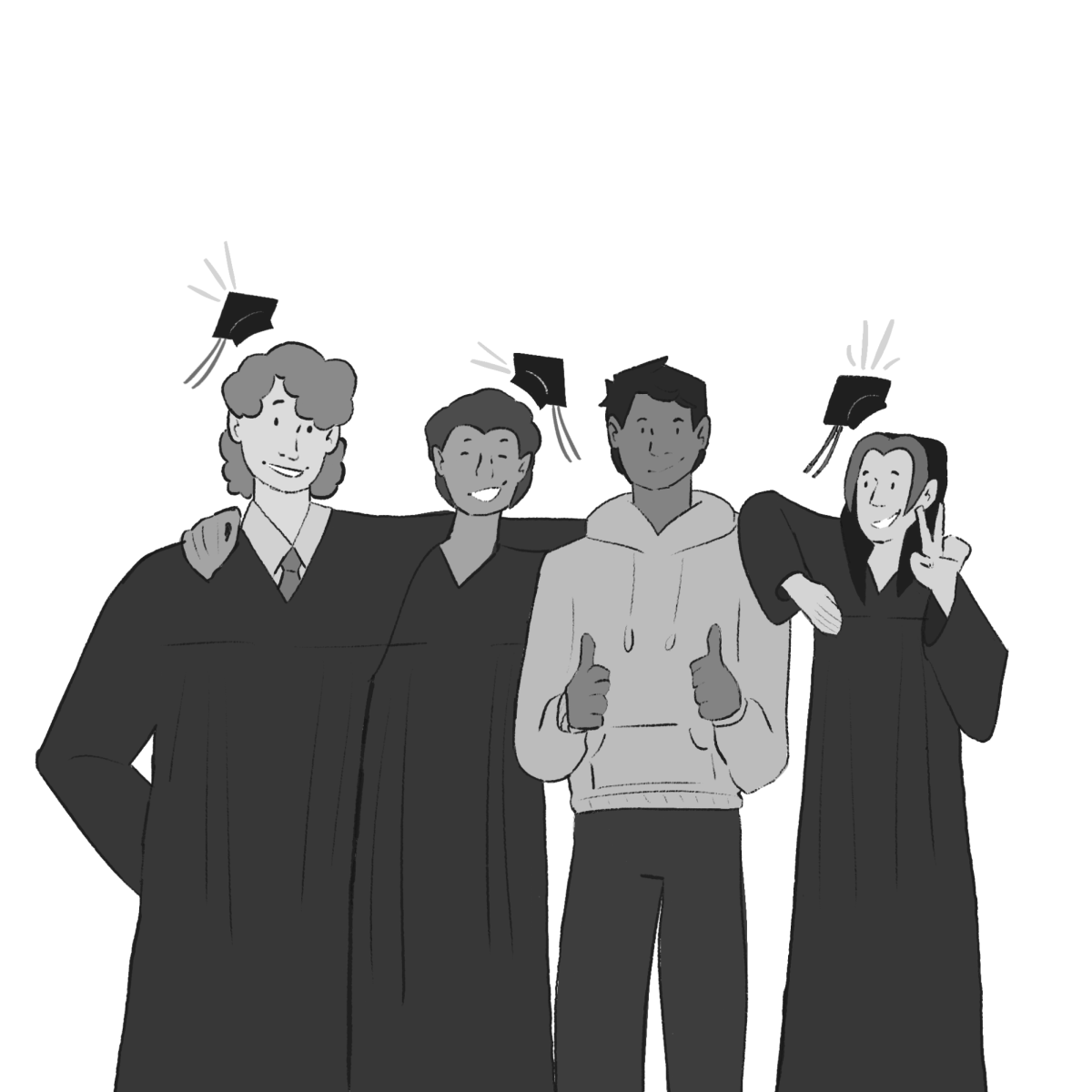Many activities at SCHS have a majority of senior participants, making it difficult for remaining members when they graduate. This is especially impactful when staple students in leadership positions leave, forcing clubs and sports teams to rebuild from the ground up.
Sophomore Lauren Dellona has been a part of the American Sign Language Club for the past two years and has observed how the dynamics changed after seniors leave each year. Predicting only a handful of regular attendees next year, she expressed concern about the future of the ASL Club.
“Last year, we had way more members, but most of them, including the entire council, were seniors,” said Dellona. “This year, the council is mostly seniors again, except for me and my friend, so I’m not sure how well it’s going to survive next year.”
Sophomore Dominique Mabanta has noticed a similar shift within the SCHS marching band. While the group nearly doubled in size since her freshman year, the number of seniors has dropped significantly, leaving behind a gap in returning leadership.
“I think the hardest part this past year was going from having a really big senior class my freshman year to a class of only about nine,” Mabanta said. “The biggest challenge was figuring out how to push each other, hold each other accountable, and who to look to for guidance… If those new seniors don’t take on leadership, then nobody has anyone to look up to.”
Like many other underclassmen across campus, Mabanta has also seen how the departure of upperclassmen impacts not just participation but also the culture and identity of a club or sport.
“This year, a lot of our traditions changed. We used to have game days and run practices a certain way, but that completely shifted,” Mabanta said. “The only people who planned those fun activities were the seniors from my freshman year. There are new things now, but it’s just not the same.”
With leadership gaps and dwindling membership, underclassmen have the opportunity to step into lead roles. While this came with many challenges for the ASL club, advisor Talia Orsetti-ng praised the evolution and unique ideas brought in by the new officer board.
“I absolutely loved what those seniors built, (but) it’s cool to have a rebranding of a club whenever a group graduates and hands over the torch,” Orsetti-ng said. “You get to see new people put their spin on similar things. Watching that growth is very cool.”
As the club prepares to repeat the same cycle of transferring leadership in the coming school year, some students feel underprepared without experienced seniors to guide them on how to lead a club. As the incoming president for ASL club, Dellona is excited yet nervous to take on the role without as much experience.
“I wish there was a junior above me because I’m not in ASL 3, so I don’t have as much knowledge, especially with some of the things we cover,” Dellona said. “It’s not going to be that bad, but I feel like I’d be more comfortable knowing everything that the school has to offer and then to lead the club for the school.”
One other reason the loss of seniors might take a toll on some clubs is the pandemic disrupted many existing traditions. With the post-pandemic structure of clubs having changed drastically, some are still working to recover pre-COVID events, all the while introducing new plans.
“Back then, we used to do ASL quiz bowls, where we would interact with ASL students from other high schools or deaf schools… and while we’re trying to rebuild that, it’s getting harder and harder because the people who know what that was like, they’re leaving before we can get to the process,” Mabanta said.
For freshman Devyn Tang, she has benefitted from experienced seniors on the girls’ swim team, who provided her with vital guidance. Without as many seasoned upperclassmen for the following year, however, the team will have to undergo major transitions.
“Next year we’re gonna struggle because we lost like five seniors, so we barely have a team,” Tang said. “My relay team is made up of three seniors and me, and they’ve been so helpful, they’re like a support system. I had no idea what I was getting into at first, but they taught me and helped me through it.”
Despite the changes that will occur next year due to the shifts in members and team dynamics, Mabanta is determined to hold onto the energy from past seasons. From team spirit to bonding outside of practice, she wants to continue making lasting memories.
“That was honestly my main objective: to keep as many of the good and fun and encouraging parts of my freshman season for the years to come,” Mabanta said. “We would have lots of bonding, where we would just go out and get food, or we would do game days instead of practicing.”
As new leaders emerge, so does the responsibility to maintain a strong community. In the face of transition, consistency and commitment from both leaders and members are essential to keeping clubs alive.
“Hold everyone accountable – I think that’s one of the biggest things missing in clubs now,” Orsetti-ng said. “You can’t be counted as being a part of that group (if) you’re not consistently going and supporting that community. Leaders need to hold members accountable and give them a reason to keep coming back.”


